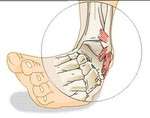Collagen is often touted as the fountain of youth, but what exactly does this protein do for your body, and how much should you actually be consuming? Let’s break down the science behind collagen supplementation and help you navigate the world of powders, capsules, and claims.
Collagen: The Building Blocks of Your Body
Imagine collagen as the scaffolding that holds your body together. It’s a key structural protein found in skin, tendons, ligaments, bones, cartilage, and even blood vessels. This means its decline with age can manifest in various ways—think wrinkles, joint stiffness, and weakened bones. While our bodies naturally produce collagen, this production slows significantly after age 25, accelerating after 40. Lifestyle factors like smoking, excessive sun exposure, poor diet, and lack of exercise further deplete collagen stores.
Types of Collagen: Not All Created Equal
There are over 28 types of collagen, but six dominate our bodies:
- Type I: The most abundant type, forming the connective tissues in skin, tendons, bones, and ligaments. You can find it in bone broth, tough cuts of beef (think pot roast), and even fish with the skin on (like sardines).
- Type II: Found primarily in cartilage, this collagen acts as a lubricant for your joints, aiding in smooth movement. Good sources include chicken with the skin still intact.
- Type III: This type resides in skin, muscles, intestines, and blood vessels. It’s abundant in collagen derived from cow hide, bones, and tendons.
- Type IV: Primarily located in layers of skin and tissues supporting organs like your lungs, kidneys, and eyes. This type isn’t commonly found in supplements.
- Type V: Found in some skin layers, hair, eyes, and placental tissue (in pregnant people). Eggshell membranes are a noteworthy dietary source.
- Type X: This collagen contributes to bone and joint cartilage health and is often sourced from eggshell membranes in supplements.
Why People Turn to Collagen Supplements
While collagen-rich foods exist (bone broth being the most popular), incorporating them into daily diets isn’t always feasible. This is where supplements step in, offering a concentrated dose of this vital protein.
Potential Benefits Backed by Science:
- Skin Health: Collagen supplementation shows promise for improving skin elasticity, hydration, and reducing wrinkles and roughness.
- Joint Pain Relief: Some studies suggest collagen supplements can reduce joint stiffness and pain in individuals with osteoarthritis.
- Bone Health: Collagen’s role in bone structure means supplementing might contribute to maintaining bone density and potentially mitigating osteoporosis risk.
Finding Your Optimal Dose: A Personalized Approach
The “magic number” for collagen intake is elusive, as it depends on individual needs and goals. Research suggests a range of 2.5 to 15 grams per day of hydrolyzed collagen (collagen peptides) taken over 12 weeks may be safe and beneficial. Lower doses (around 5-10g) might prioritize skin health, while higher doses (up to 15g) could support bone and joint health or even muscle growth and recovery thanks to the presence of glycine, an amino acid crucial for creatine production.
Undenatured type II collagen, sourced from chicken cartilage and not broken down like hydrolyzed types, is often recommended at lower doses—up to 40 milligrams daily. It’s believed to work by interacting with the immune system during digestion.
Choosing Your Collagen Supplement: Factors to Consider
- Form: Collagen supplements come in pills, capsules, and powders. Powdered collagen offers versatility for adding to smoothies or coffee.
-
Source: Look for hydrolyzed collagen from reputable sources like bovine (cow), porcine (pig), or marine (fish) origins. If you’re vegan, opt for plant-based options that support your body’s natural collagen production through amino acids and other beneficial nutrients.
-
Type: Consider your goals. Type I & III are popular for skin health, while type II is often chosen for joint concerns.
Before You Start: A Word of Caution
While generally considered safe, some people may experience mild side effects like bloating, diarrhea, or indigestion. If you have allergies to fish, shellfish, or eggs, carefully check the ingredient list before taking supplements derived from these sources. Always consult your healthcare provider before adding collagen supplements to your routine, especially if you have existing health conditions or take medications.
The Bottom Line: Collagen Isn’t a Miracle Cure
Collagen supplements show promise for supporting overall well-being, particularly for skin, joint, and bone health. However, it’s not a magic bullet. Think of it as one piece of the puzzle – alongside a balanced diet rich in protein, fruits, vegetables, and healthy fats, regular exercise, adequate sleep, and stress management. These lifestyle factors all contribute to maintaining collagen levels naturally and reaping the full benefits this essential protein has to offer

































